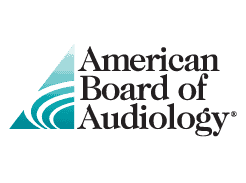Rechargeable Hearing Aid Care and Maintenance
To get the most out of your rechargeableproducts, the following is recommended:• Bring your charger with your hearing…
Read ArticleExpert Audiologists. Professional Care. Locations in Longwood and Mount Dora.





Few clinics perform real ear measurements regularly despite evidence that shows patients are generally more satisfied with their hearing aids when real ear measurement is performed.


Audiologists are highly trained professionals with doctoral degrees and four years of specialized university education in the area of hearing disorders.
They provide comprehensive evaluations and treatments for hearing loss, beyond just fitting hearing aids.
The audiologist’s goal is to understand the pathology and other factors that may contribute to the hearing loss, as well as to help their patients better comprehend their hearing health.
.
We will check insurance for you and review your coverage.
Hearing aids take time to assess. Our return period is 45 days.
Your treatment will be performed by only licensed audiologists
We will work with all the leading manufacturers.
Many ads make false claims. We only work with proven technology.
Affordable payments are available for everyone's budget.
I started practicing in 2007 after graduating from the Nova Southeastern University. During those college class years...
Read More“Hearing care that is customized to the individual is essential to success with hearing aids. During our first meeting I will try to get to know you on a personal level and learn your goals and needs”.
Read MoreFind out the latest news about our clinic and information about all your hearing health related needs.
To get the most out of your rechargeableproducts, the following is recommended:• Bring your charger with your hearing…
Read ArticleAs we approach the heartwarming season of Thanksgiving, we at All About Hearing/Lake Audiology want to extend our deepest…
Read ArticleExploring Tinnitus Treatment: Audiologist vs. Otolaryngologist Perspectives Introduction Tinnitus, often described…
Read ArticleMy physical therapist is excellent! The whole office is very friendly and helpful. Physio is absolutely outstanding. Thank you very much for your great, attentive service
All of the staff was fantastic! The care I received was impeccable. Great place! I also love the availability of the Fit Plan for continued support after my discharge
Everyone I worked with was wonderful, very professional, caring and prompt. My therapist was great, as were all of the aids!
I had a really positive experience and my shoulder is totally functional again, without pain! I really enjoyed my therapist and all of the rest of the staff




